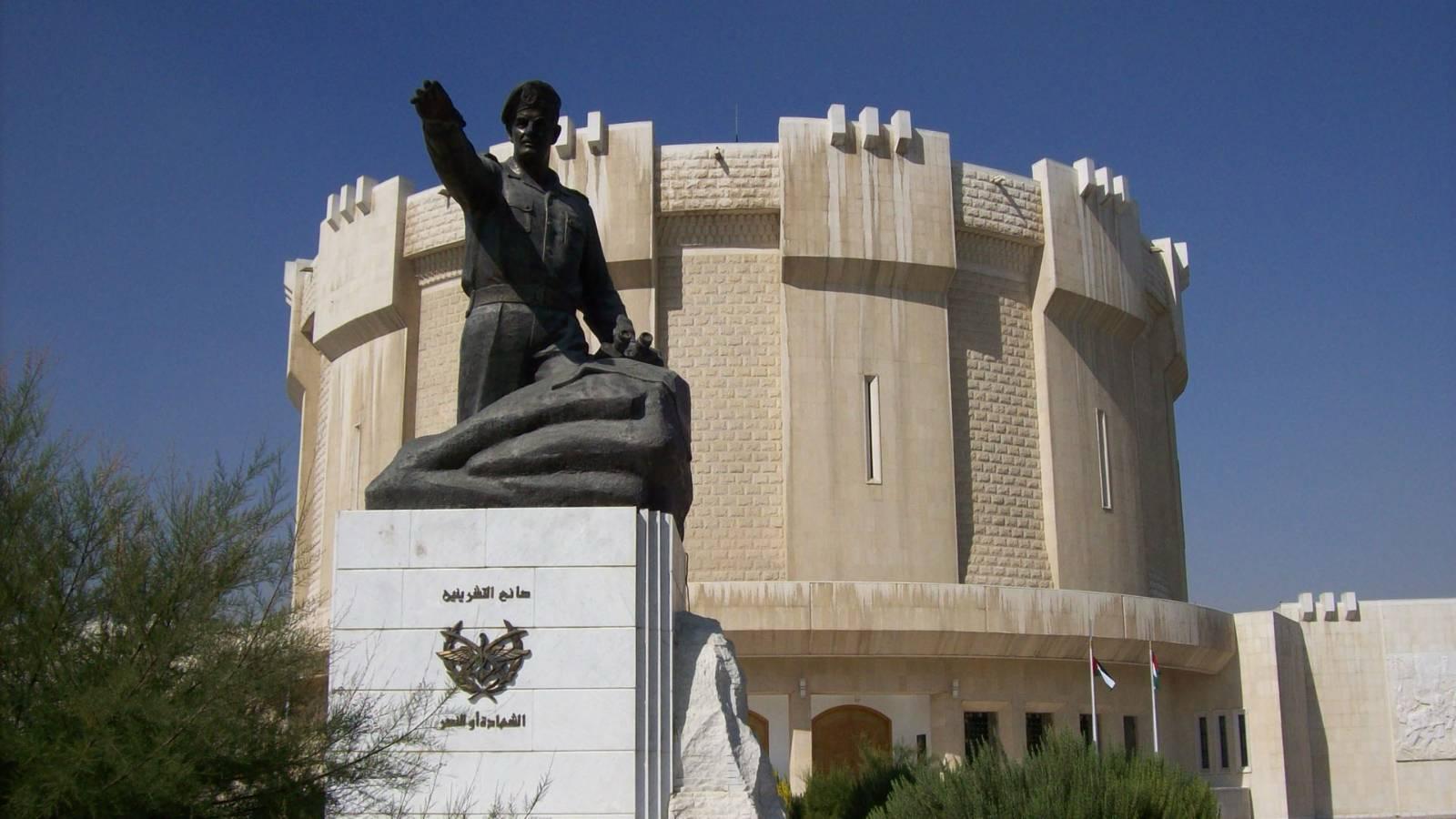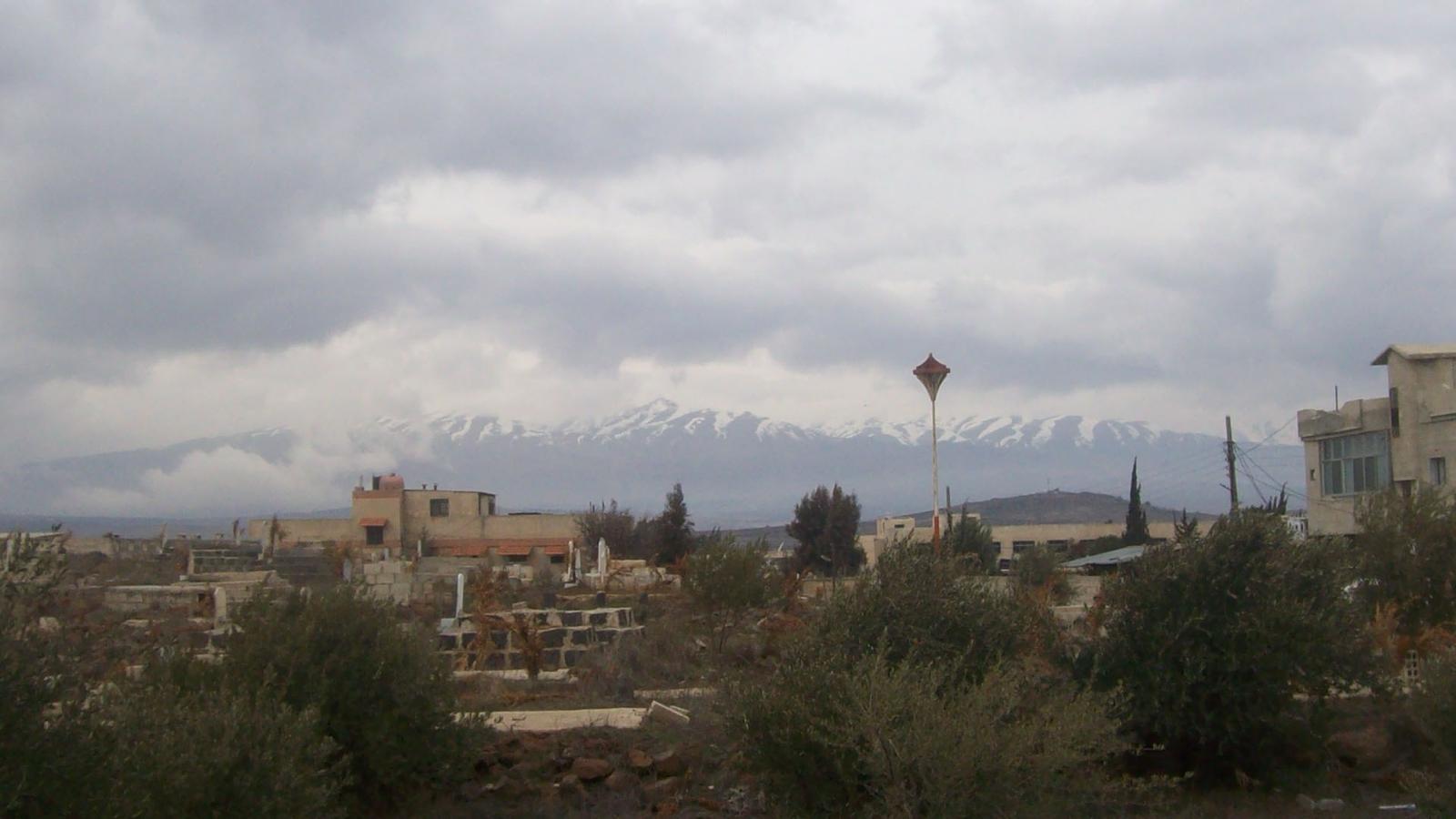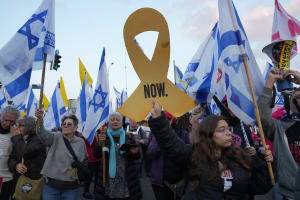Living as a student in Assad’s Syria
Merle Hofer shares with ALL ISRAEL NEWS about her experiences in Syria and how she came to understand what Israel was up against

Merle Hofer studied in Syria and was surprised to discover that her childhood in East Germany had been the perfect preparation. Today, Hofer is a journalist with the German news site Israelnetz and reflected on what she saw and experienced there in an exclusive interview with ALL ISRAEL NEWS.
Growing up under the communist regime in East Germany in the 1980s, Hofer quickly developed the instincts necessary to survive living under a dictatorship. As far back as she can remember, she knew you just shouldn’t say certain things to anyone outside the home – and sometimes even inside the home. She was constantly aware of surveillance. These skills would serve her well under the regime of Syrian President Bashar al-Assad two decades later.
Learning to live under surveillance
“I grew up in a communist state that was very anti-religious, and anti-clergymen. They did all kinds of stuff to try to frighten them, to spy on them,” Hofer explained – a challenge when your father is a pastor. “I was almost six when the Berlin wall came down, but there were a lot of things built in that I didn’t understand until I went to Syria.”
“People were afraid of policemen, for example, you would never joke around with them. You and I are in the free world but they were living under oppression.” Access to a phone was limited to a select few in the town and constantly tapped. “You knew you couldn’t talk freely.”
Certain habits became ingrained unconsciously, and it wasn’t until she was living in Western Germany that the mother of one of Hofer's friends asked why she would always cross the street if she saw a police officer. “She explained that I didn’t need to do that so I stopped. But when I went to Syria 20 years later, I realized I was doing it again.”
Hofer’s first trip to the Middle East was to serve as a volunteer with mentally ill people in the Galilee region in the north. She made friends with some local Bedouins, especially one woman her age.
“We were like sisters. She made me rethink my perception of Islam.”
“I wasn’t so much into the Israeli-Palestinian conflict,” Hofer says. “I thought both sides probably had their part to play, that’s how I was raised.”

Tea and conversation in Syria
Later, when she arrived in Syria in 2007, Hofer made it her goal to spend as much time as she could socializing with Syrians to improve her spoken Arabic as part of her Middle Eastern Studies program back in Berlin.
Drinking endless cups of tea in multiple houses, she was determined to get as acquainted as possible with the language and culture of Syria. However, what she saw in the lounges of ordinary people would shock her to her core.
“Israel is not a topic of conversation, it's taboo. If it comes up, it’s just all about Palestine and the Zionists – a single narrative. While I was there at the end of 2008, a war was going on with Gaza and there were huge signs showing gruesome scenes of blood everywhere in solidarity with the people of Gaza, blaming the Zionists.”
Hofer knew that if anyone found out she had been to Israel, or worse, that she knew Hebrew and had Jewish friends, she would be in big trouble and would likely be sent home to Germany immediately.
One day, while spending time with her Druze friends again, they were counting to ten in different languages. When one of them started counting in Hebrew, she just froze. Old sensations from her childhood suddenly resurfaced.
“I had so many flashbacks,” she said. “Things I hadn’t seen or felt for 20 years. But Syria was worse than East Germany. I knew it was a dictatorship, and that there were certain things I shouldn’t tell them. None of us knew what Assad could do, because we thought if you played by the rules, it would be ok.”

Syrian state media and its effects
For several weeks, Hofer was the guest of a family of Palestinian descent who became refugees in 1948. Hofer understood that Israel shouldn’t be mentioned, however, the truth was that Israel was mentioned all the time, every day during wartime.
“I never watch horror movies but when I went to visit friends and people’s houses during the war I saw things far worse. Every living room has a big TV and it’s always on,” she explained. “Whenever you go to someone’s house, you watch TV. You can’t avoid it. What I saw was worse than I could ever imagine, worse than a horror movie.”
Hofer described some of the scenes that seemed to be constantly playing, ostensibly of Palestinian children killed in Gaza by Israelis. “There were little children dismembered, blood everywhere, extreme brutality, and always with comments that it was ‘the Zionists’ who did it.”
Hofer was staggered to learn that, despite high standards of modesty on Syrian television, explicit gore and savagery were constantly being aired in everyone’s homes, day and night, and in front of children.
“There was no proof,” Hofer added. “Most of the pictures were not even from Gaza. Even if they were, it wasn’t clear who did it – whether it was the work of Palestinian Jihad or what. It wasn’t necessarily the IDF at all.”
Hofer began to notice her attitudes and assumptions were being shaped by the daily diet of anti-Israel propaganda.
“I caught myself thinking that Jews were what they said, probably into money, with long noses, greedy…” The messaging was bombarded through the media all the time and came up regularly in everyday conversations. She remembers suddenly becoming aware of these thoughts and saying to herself, “This is not healthy anymore, why would I think this?”

Understanding what Israel is up against
“I had a very smart friend who spoke good German. He had read a lot and was liberal and open-minded. He told me he was gay, and I knew it was safe to tell him I’d been to Israel.”
Hofer figured he wouldn’t tell anyone for fear of his own secret being revealed, but as they talked about German history, she recalled, “I suddenly understood he had no concept of Holocaust. He had never heard of Auschwitz. He was so intelligent, liberal, and open, yet didn’t know anything at all about this very important part of history.”
Hofer had been brought up well, with a good understanding of German history.
“Yet these people have had none of this, no idea and no information about what actually happened. Whatever they have heard they just deny it,” she realized. “Israel can do whatever they want but they’ll never be right. It totally changed my mind.”
There was only one other person whom she ever told that she had been in Israel – a Muslim background believer, who, again, had just as much to lose. Even so, he told Hofer not to mention it to his wife. Through these experiences in Syria, Hofer gradually understood what Israel was up against.
“I used to think it was a case of two conflicting sides, but suddenly I understood one side just wanted to live, while the second side just denied the right of the other to exist,” she said, adding, “I lived a completely different life in Syria, not related to my childhood, but somehow it was very parallel.”

Jo Elizabeth has a great interest in politics and cultural developments, studying Social Policy for her first degree and gaining a Masters in Jewish Philosophy from Haifa University, but she loves to write about the Bible and its primary subject, the God of Israel. As a writer, Jo spends her time between the UK and Jerusalem, Israel.













